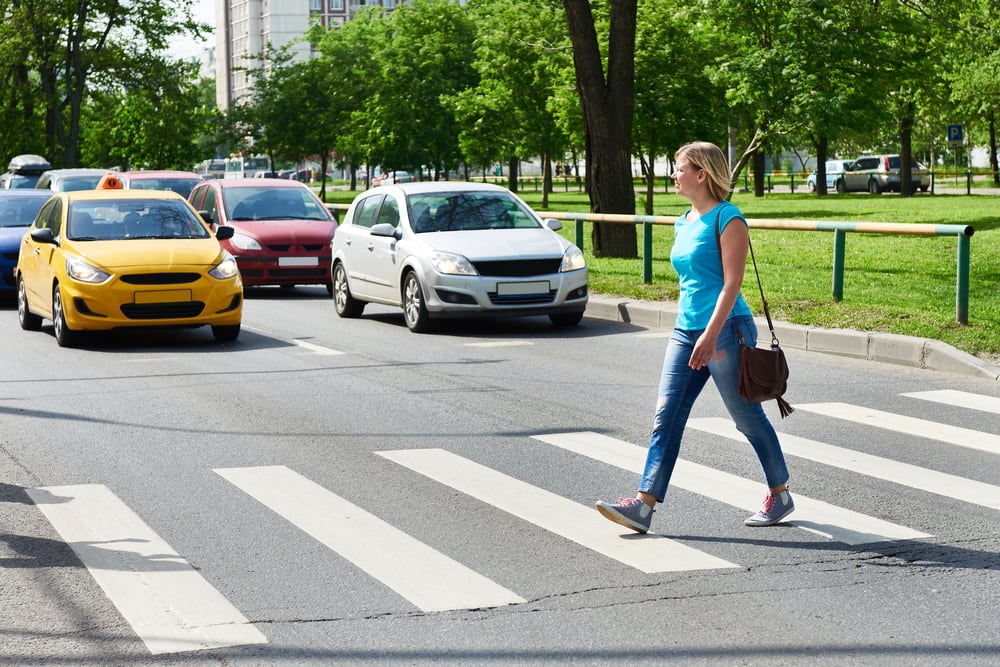

Most traffic accidents in the state of New Jersey occur when one motorist fails to yield the right of way to another, or to a pedestrian. Common sense dictates that you should do everything you can to avoid an accident, but motorists are often confused as to who has the right of way in certain circumstances. Right-of-way laws are based in common sense, and there for your protection.
Summary of New Jersey’s right-of-way laws
The right-of-way laws in New Jersey can be summarized as follows:
Basic rules
Emergency vehicles (police cars, ambulances and fire engines) always have the right of way if they are sounding sirens and flashing lights.
Trains approaching crossings always have the right of way.
You must yield right of way to buses and postal vehicles that are attempting to re-enter traffic.
You must yield to motorized scooters and other mobility-assistance devices when their users are trying to cross the road.
You must yield to any vehicle that is already in the intersection.
Pedestrians
You must always yield to pedestrians in crosswalks.
Even if a pedestrian is crossing against a light or jaywalking, it is still your responsibility to ensure his or her safety, and you must yield the right of way.
Intersections
At a multi-way stop, if you cannot determine whether you or another motorist arrived first, you must yield to the driver on the right.
Vehicles that are already in the intersection must be given the right of way.
You must yield to any traffic that is in a position where your failure to yield could cause an accident.
Pedestrians
- Pedestrians are required to obey the traffic laws the same as motorists. However, even if a pedestrian is jaywalking or crossing against the light, you have to take responsibility for their safety and yield the right of way.
Common misconceptions about New Jersey right-of-way laws
New Jersey is a bit quirky in one regard. Most states have regulations concerning traffic circles. In New Jersey, there are actually no right-of-way laws as regards traffic circles, so common sense has to prevail. So, since you know that traffic in roundabouts moves in a counter-clockwise direction, you should observe the traffic that is already in the circle, and to your left. Yield the right of way, and then wait for a gap before entering the circle.
Penalties for failure to yield
If you fail to yield to another motorist, you will have two demerit points assessed to your driver’s license. You will also be subjected to a $50 fine for your first offense, and $200 for your second. You could also be given 15 days in jail, either instead of or in addition to the fine.
If you fail to yield to a pedestrian, you will lose 2 points, could be fined up to $500 and/or given 25 days in jail, or sentenced to community service. You could also face a suspension of up to six months.
For further information, refer to the New Jersey Driver Manual, pages 61-64.



